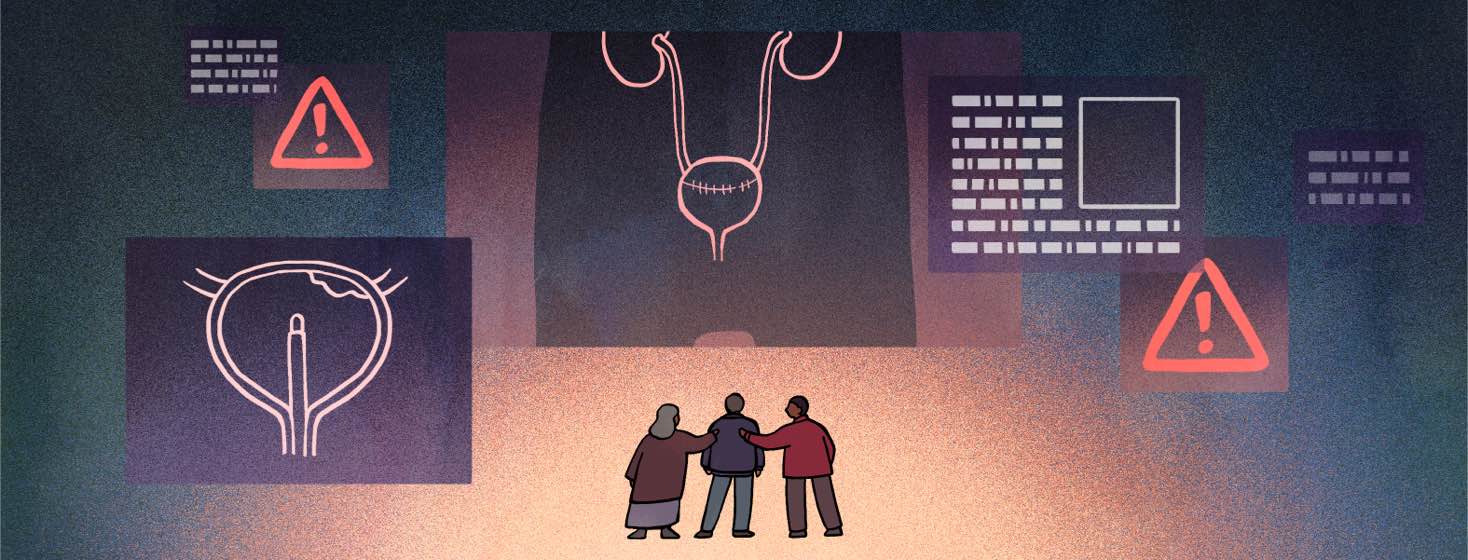How Phil Made the Decision to Have a Radical Cystectomy
We're highlighting people in the bladder cancer community and sharing some of their experiences. I talked to Phil about his first bladder cancer symptoms, getting multiple medical opinions, and his bladder removal surgery and neobladder. Read on to learn about his journey!
Noticing small traces of blood in my urine
About the time that I was pacing the hallways of New York-Presbyterian Hospital waiting on word of my brother’s unexplained spiral into near-death (while the world was simultaneously shutting down and going crazy), I noticed very small traces of blood in my urine. I dismissed it as probably an infection, maybe some prostate thing. After all, I was about to turn 61 and about the right age when those things became problems. I had other things to worry about.
Realizing the symptom could mean something serious
Not until 3 months later, after my brother was released and after my son moved to the west coast (yes, mid-pandemic), did I get it checked out. Urinalysis was negative for infection. Still, I wasn’t too concerned. At least not until after the first scope and biopsy when the urologist handed me a card for their surgeon oncologist on the way out. “Hmm, it may be time to get concerned.” I shifted into research mode. I identified the 3 or 4 top people in New York just in case. But still, I didn’t believe I could have bladder cancer. I had none of the risk factors, and I had struggled with a rare and serious hereditary heart disease. This just seemed too unfair.
Undergoing a TURBT to learn more about the cancer
When the call came that it was a malignancy, the first stop was Sloan Kettering Memorial Hospital for confirmation, then TURBT surgery. TURBT is a relatively straightforward outpatient surgery to remove and biopsy more of the tumor. For me, the worst of it was the catheter I needed for two or three days afterward. Then came the results. It was a very large high-grade tumor that was into the bladder wall but probably not yet in the muscle. Their recommendation was immediate radical cystectomy. They were going to remove my bladder, prostate, seminal vesicles, and some lymph nodes.
Surgery was the recommendation
“Radical” is no joke. “But wait, what about trying chemo first? How about immunotherapy? Shouldn’t I try something first before being gutted like a fish?” The answer was that surgery was my best shot at saving my life. So, I learned about the pros and cons of the different urinary diversions and if everyone agreed that I was a good candidate, a neobladder was the best option for me. They could reconstruct my bladder using a section of the intestine.
I needed more opinions from the top bladder cancer experts
It was a long and difficult surgery but with the potential of a very good outcome. I liked my surgeon at MSK, but I needed to hear more. I consulted a renowned surgeon at NYU who had recently moved there to build their bladder cancer program. But despite his stellar reputation, I wanted a more established program. I consulted the surgeon at New York-Presbyterian. He pioneered the robotic radical cystectomy and had experience with neobladders but that was not his expertise. I went back to Memorial Sloan Kettering, but this time, I wanted to consult their top guy.
Realizing a radical cystectomy was my only real choice
Dr. Bernard Bochner was at the top of the game when it came to neobladders. He had performed more of this surgery than anyone in NY, maybe in the world. Now, these 4 experts agreed. Radical cystectomy was my only real choice. My video meeting with Dr. Bochner was both reassuring and horrifying at the same time. This was getting very real, very fast. He didn’t want me to wait much longer. Time was not on my side.
Going in for the operation - alone
5 weeks after the initial diagnosis, confident in both my decision and in my surgeon, I went in for the operation. Again, I was dropped off at the hospital door by my wife who could not even accompany me into the lobby. “Can my heart withstand this long surgery? Will I wake up with a neobladder or will some complication necessitate a different diversion? What is my life going to look like?” The surreal nature of this nightmare continued, and I would be lying to say that I wasn’t scared.
Strength, resilience, and the importance of a support system
This journey has taught me that I have even more strength and resilience than I knew. It showed me again the importance of family and friends. I also learned that not everyone will react the same way to what I was going through. For some people, it was just too much to deal with any of it beyond the superficial facts. Others were immediately more empathetic. I don’t think that it means that some care more than others, just that our own life experience informs how we react to other people’s challenges.
Advice for the newly diagnosed
There is no way to prepare for a diagnosis like bladder cancer. It is very easy to feel overwhelmed by the enormity of it and the barrage of information that you need to process and the decisions that you have to make. My advice is to break it down into the steps that need to be dealt with next. Arm yourself with information. Learn which are the trusted resources online. Access the best experts that you can and ask a lot of questions. Experience is everything when you are interviewing doctors and surgeons. That is especially true the rarer the disease and the more specialized the surgery. And above all, don’t forget to be kind to yourself.
Read more about Phil's story and how his family supported him throughout his journey.

Join the conversation